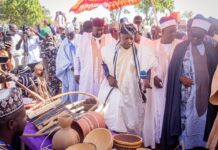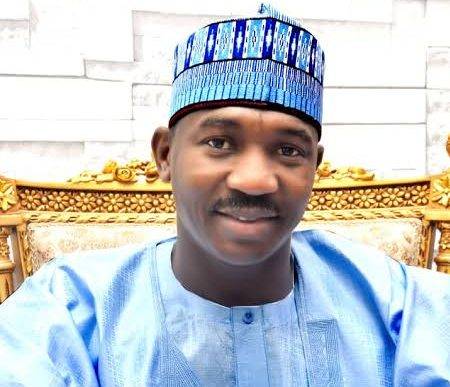Proverbs. 3:27 Do not withhold good from those to whom it is due, when it is in your power to act.
I am neither a psychologist nor an anthropologist, but my over sixty years of living with my people, studying them and researching them have led me to many conclusions about them. Of course, I may be wrong in my assumptions and hypotheses, since they are not backed by scientific facts and data, but nevertheless, these are my conclusions, based on objective observations and analyses. They are by no means cast in stone nor do I claim to have a monopoly of knowledge or righteousness.
At a rudimentary level, leaders need power. They need the power to influence, to develop, and to enable and impact people, the society and the environment. These are fundamental to making things happen, and therefore to the ability to do the job of a leader. However, this isn’t the same as having authority and rank. Indeed, some of the most powerful leadership can arise when these things are deliberately surrendered. The leader’s power should always be a means to an end, with the ‘end’ being the achievement of worthwhile outcomes for the greater good in and of the larger society. In politics and in a democracy, the leader’s power always come from the people who voted him/her in. He/she must be accountable and responsible to the people.
In government, the term authority is often used interchangeably with power. However, their meanings differ: while power is defined as “the ability to influence somebody to do something that he/she would not have done”, authority refers to a claim of legitimacy, the justification and right to exercise that power (Wikipedia)
The problem is that in Africa, we have, intentionally or unwittingly, confused power with authority, and those who wield power do not know the reason they have the power, and what they should do with it. In a way, I have some pity for them, for they do not know what they do or are doing (paraphrasing Our Lord Jesus Christ). Our rulers and so-called leaders therefore misuse, abuse and misinterpret both power and authority, because of their ignorance of what these mean and represent. It is the story of our lives as Africans and Nigerians. It is a cultural problem.
I consider myself to be a respectful African, Nigerian and Yoruba; always respect my elders, as our culture and ethics demand. I also love my culture, and I am proud of it. I engage and prosper in my African-ness and its cultural attachments.
But we have too much respect for, and defer too much to, our elders, but a lot of those elders have become degenerate and decadent and do not reciprocate. Respect goes both ways, as I have come to learn. Our elders think they are the wisest, smartest, have monopoly of knowledge, and they are the only ones that can run anything. And unfortunately, we let them think so, let them run things, and thereby let them ruin things, including our lives, our environment, and our very survival as a people. We never challenge them or resist them. Hence, they are always there riding roughshod over us, never letting go, and reminding us at any sign of insubordination, that that they are older, and hence wiser, than us. That’s number One.
Number two is that Africans love and worship power so much that we never want to leave it, or feel insecure to leave it. To voluntarily relinquish power is anathema to our culture, I suppose, and this is exemplified in our politics and government. The bulk of Dictators who have stay very long as Presidents is in Africa. (Please don’t think I am saying other cultures do not; they do, but what they do with it, we can all see). We enjoy it; we use it to perpetrate all kinds of evil on our fellow Africans, and use power to acquire wealth, position, status, etc.We use it for personal aggrandisement, personal acquisition of wealth and property, or to benefit our immediate family and circle of friends only. Who’d want to leave that? We prefer and want to die in power because we are afraid of being forgotten despite the fact we never leave any legacy. It’s a cultural thing.
Thirdly, Africans will do anything to acquire or get to power; a power that he/she doesn’t even understand. He/she will kill for it, but will not die for it. Then when he/she gets the power, he/she doesn’t know what to do with it, except oppress his fellow Africans; except abuse power and authority; except steal money; etc. They forget easily their previous humble background and the mentality is that “I have suffered enough; it is now my turn to enjoy”. They turn their back on their childhood friends, family and the society. They build prison walls around themselves and become pompous, selfish, greedier, and insensitive.
Fourth, the African in power thinks he’s a god; a mini-god. Some even think they are immortal and untouchable by death and the vagaries of earthly existence. They never think that death can come anytime, despite their ill-gotten wealth and their sins against humanity and their people, and that somehow, they must pay for their crimes and Nemesis must catch up with them. Give an African a uniform (soldier, police, civil defence, customs, immigration, prisons, traffic warden, Man o’War, and even Boys Scout), and he becomes a scourge of his people, strutting on the street with his/her starched uniform, and when you give him/her a gun in addition, then he/she becomes the giver of life or death – he/she becomes obstinate and tyrannical, oppresses them, and uses his/her position to acquire wealth and properties and other luxuries of life with the macabre belief that he/she is now immune from poverty, diseases, mortality and the sufferings of the world. Our daily lives and society are replete with examples.
Finally, it is very rare that Africans use their wealth and power, as well as knowledge, education, skills, etc. for the benefit and welfare of the general society, instead we use all these to ensure our fellow people do not rise to be at the same level with us or above us, and therefore despite many rich Africans in and out of the continent, you will find very few philanthropists of African descent. In fact, the educated African is very dangerous to the health and welfare of his fellow, less educated Africans. Education, especially Western, is used to subjugate the people; to dupe them, to fool them and to steal from them. For Islamic education, it is the same, and has created feudalism in many parts of Africa; only the Islamic scholars can interpret the Koran and they know how to use it to blindfold their followers.
The youths talking today will become elders tomorrow, and see how/what they will turn out to be. We are already seeing them reverting to type. It is a cultural thing; a cultural malaise. You need examples? Again, the society and the polity are replete with them.
The intent of leadership holding certain power, coupled with authority, is to deliver worthwhile outcomes for the greater good, and in the pursuit of a vision of a better tomorrow. The application of power should be supportive to that intent. It isn’t about winning, or scoring points, or pulling rank, or gaining personal benefit. As with all aspects of contemporary leadership, it’s not about you (the leader), but about everybody else, from customers, to colleagues, to followers, to the public and to the society.
A leader’s power should always be used for good. And that is not what we are having in many parts of the African continent. The good is not always being the aim of our leaders.
The burden lies in the people and the society also, attributable to our culture and traditional ways of doing things, of revering anybody that rears their head as a leader or ruler; probably poverty of materials and the mind, and maybe a dose of the effect of colonialism and the slave trade, and added ignorance, illiteracy and primordiality.
Telling the Truth always!!!



